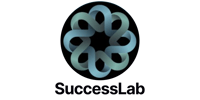Traditionally, artificial intelligence (AI) has been hailed as a revolutionary tool for automating routine and repetitive tasks, freeing humans to focus on more complex and creative endeavors. This view has dominated discussions around AI's potential in the workplace, suggesting a clear division between tasks suited for humans and machines. However, a recent study led by François Candelon of Boston Consulting Group (BCG) and conducted in collaboration with top academic institutions challenges this conventional wisdom, offering a fresh perspective on the capabilities and applications of generative AI. https://lnkd.in/g8WEeU7j The Conventional View:
The prevalent belief has been that AI excels in taking over mundane, repetitive, and time-consuming tasks, thus enabling humans to allocate their efforts toward tasks requiring higher-order thinking, creativity, and problem-solving skills. This perspective positions AI as a backend supporter in the professional arena, primarily enhancing efficiency and productivity by automating processes.
Challenging the Status Quo:
Candelon's study unveils a more complex and nuanced role for generative AI, illustrating its profound impact on creative tasks. The experiment showed that individuals working alongside AI significantly outperformed those who did not use AI when it comes to generating innovative ideas and solutions, such as developing new product concepts. This revelation positions generative AI as a tool for automation and a catalyst for creativity and innovation.
Furthermore, the study highlighted a surprising finding: AI's assistance is not universally beneficial across all types of tasks. While it enhances creativity, its contribution to problem-solving tasks can be misleading, indicating that AI's effectiveness is context-dependent.
Another critical insight from the study is the democratizing effect of AI on the workforce. AI tools were found to be particularly beneficial for enhancing the performance of below-average performers, suggesting that AI can significantly level the playing field within organizations.
Recommendations for Businesses:
- Strategic Application: Companies must identify areas where AI can truly augment human capabilities, focusing on creative and innovative tasks rather than expecting AI to enhance all aspects of work universally.
- Optimizing Collaboration: Reevaluating workflows to foster effective human-AI collaboration is essential. Initiatives include starting with human-generated ideas and using AI to refine these concepts, ensuring the best of both worlds.
- Business-centric Approach: Rather than seeking ways to implement AI technology for its own sake, businesses should focus on how AI can solve specific challenges, improve efficiency, and drive innovation.
- Adapting Talent Strategies: The study's findings suggest the need for companies to adjust their talent management approaches, leveraging AI tools to support skill development and enhance performance across the board.
- Data and Workflow Reassessment: With generative AI, the importance of data management is underscored. Businesses must also consider revising their workflows to integrate AI more effectively, promoting a symbiotic relationship between human creativity and AI's analytical power.
Businesses can unlock new levels of innovation and productivity by strategically integrating AI, focusing on areas where it adds the most value, and adapting to its implications for talent and workflow.



